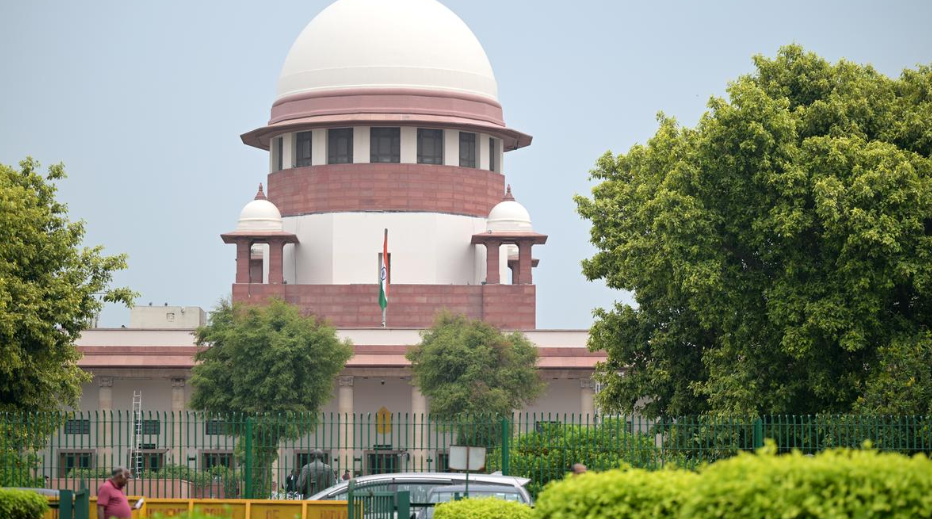Supreme Court Ruling on Delhi L-G’s Power to Nominate Aldermen (GS Paper 2, Polity)

Context
- The Supreme Court of India recently upheld the authority of the Delhi Lieutenant Governor (L-G) to nominate aldermen, marking a pivotal moment in the governance of the Municipal Corporation of Delhi (MCD).
- This decision has clarified the extent of the L-G’s powers amidst ongoing conflicts with the Delhi government.
Background
- In January 2024, the Delhi L-G appointed ten aldermen, which led to legal challenges questioning the legitimacy of this action.
- The dispute over the L-G’s authority created a prolonged legal impasse, affecting MCD operations.
Supreme Court Verdict
- Authority Upheld: The Supreme Court confirmed that the Delhi L-G has the explicit power to nominate aldermen under the Delhi Municipal Corporation Act, 1957 (DMC Act), without needing the aid and advice of the Delhi government’s Council of Ministers.
- Impact on Governance: The ruling clarifies the legal framework for aldermen nominations and resolves the operational disruptions within the MCD, ensuring continuity in municipal governance.
- Significance: This verdict provides definitive guidance on the L-G’s role and restores the functionality of the MCD’s administrative processes.
Role of Aldermen
- Definition: Aldermen are nominated by the L-G under Section 3 of the DMC Act. They must be over 25 years of age and have special knowledge or experience relevant to municipal administration.
- Function: While aldermen do not have voting rights in MCD meetings, they play a crucial role in Wards Committees, contributing expertise and aiding in local governance.
- Responsibilities: Their participation in Wards Committees helps address local issues and improve the effectiveness of municipal administration.
Wards Committees and MCD Standing Committee
- Wards Committees: Delhi is divided into 12 zones, each with a Wards Committee that includes elected representatives and aldermen. These committees are essential for managing local municipal functions.
- Standing Committee: Each Wards Committee elects a member to the MCD Standing Committee, which oversees the corporation’s operations. Aldermen can stand for election to this committee, which is crucial for MCD administration.
Importance of the Standing Committee
- Function: The Standing Committee is a key administrative body responsible for various aspects of MCD management. Its formation depends on the participation of aldermen in the election process.
- Composition: The Standing Committee includes aldermen and six other members elected by the MCD house after the mayoral elections. Aldermen’s involvement is essential for the committee’s effective functioning.
Role of the Lieutenant Governor
- Constitutional Head: The Lieutenant Governor is the constitutional head of five Union Territories (UTs), appointed by the President of India. While the role is primarily ceremonial, it includes certain executive and administrative powers.
- Executive Powers: Typically exercised on the advice of the Council of Ministers, with discretion in areas such as law and order, land, and police.
- Legislative Powers: The L-G can summon, prorogue, and dissolve the Legislative Assembly, and reserve bills for the President’s consideration.
- Administrative Powers: Oversees the administration of the UT and can appoint administrators for various departments.
Restrictions on Kejriwal Government
- Limited Influence on Nomination: The ruling restricts the Delhi government’s influence over aldermen nominations, as the Delhi government’s Council of Ministers no longer has a say in the process.
- Impact on Municipal Governance: The decision affects the Delhi government’s ability to control municipal appointments and may lead to operational challenges within the MCD due to strained coordination between the state government and the MCD.
- Tensions and Operational Challenges: The ruling exacerbates existing tensions between the Delhi government and the L-G, potentially complicating the governance and administrative processes of the MCD.
Article Under Which It Was Changed
- The Supreme Court’s ruling is based on the interpretation of Section 3 of the Delhi Municipal Corporation Act, 1957 (DMC Act).
- This section outlines the powers of the L-G to nominate aldermen, which the Court affirmed in its decision.
- The ruling clarifies that this power does not require the aid and advice of the Delhi government’s Council of Ministers, thus reaffirming the L-G’s authority in municipal governance.
Conclusion
- The Supreme Court’s decision on the Delhi L-G’s power to nominate aldermen provides clarity on the legal and administrative framework governing the MCD.
- It resolves the disputes affecting municipal operations and reaffirms the L-G’s role.
- However, the ruling also imposes restrictions on the Delhi government’s influence, potentially impacting the dynamics and governance of the MCD.


